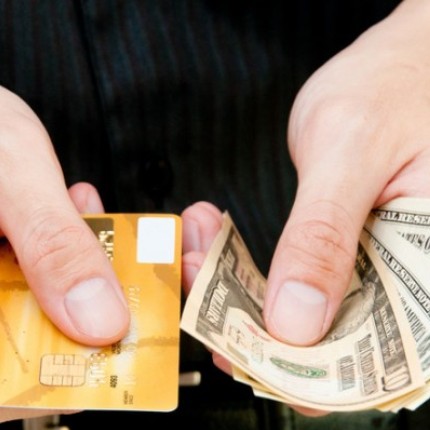5 Bad Financial Habits That Could Hurt You Down the Line
 There are some obvious financial habits that most people try to avoid: purchasing items on a whim, buying everything new, and borrowing too much money are just a few bad habits that are easy to recognize.
There are some obvious financial habits that most people try to avoid: purchasing items on a whim, buying everything new, and borrowing too much money are just a few bad habits that are easy to recognize.
Many people realize that these habits quickly cause financial problems. However, there are many other financial habits that are not quite so obvious, but can wreak havoc over your finances as time passes.
Purchasing a coffee once in a while probably won’t make you go broke, but doing so daily can add up quickly. Using credit cards can be a safe way to avoid carrying too much cash, but if you don’t check your balance regularly, credit cards can become dangerous. There are many different financial decisions that can become habits, and some of these habits will cost you in the long run. Here are five to watch out for.
1. Making Too Many Seemingly Small Purchases
It’s easy to justify a $3 purchase on a whim, but don’t let your purchases become a habit. If you regularly purchase small items, you may not realize how quickly they add up. It can be easy to get into the habit of purchasing a coffee each day, but if you spend $3 per day on coffee during the work week, that adds up to $15 per week, or roughly $60 per month. If you can afford to spend that money, then you might be able to justify your coffee addiction. However, a better solution is to make coffee yourself at home. Or bring your lunch. Or do whatever else you need to do to avoid regular small purchases.
The purchases don’t need to be regular in order to add up quickly. If you purchase coffee one day, a pack of gum another day, and a magazine another day, those seemingly small purchases will add up. According to Make the List, in addition to coffee and lunch, impulse purchases and bottled water are common small purchases that add up quickly.
2. Always Using Credit Cards
Credit cards are tricky, because there are many positives to using a credit card. Many credit cards offer rewards, and that is a great reason to use one. Credit cards also protect you from losing cash (or having it stolen), and according to the Consumer Financial Protection Bureau, credit cards usually protect users from liability for fraudulent charges. If someone steals your debit card, the purchases come straight out of your bank account, and that isn’t true with a credit card. However, using a credit card daily is dangerous because it can be easy to forget how much you are spending, and since you don’t need to pay until later, sometimes you may believe you can spend more than you should. Using a credit card too much can lead to bills that you can’t pay, which will lead to hefty interest payments.
3. Being Too Generous
Generosity is a good thing, so this point on the list might come as a surprise. However, if you don’t consider how your generosity might affect your wallet, then your decisions could hurt you later. For example, if you regularly tip a certain percent of your bill, regardless of the level of service you receive, then you are wasting money. Always tipping on the dollar can also add up over time. You also might throw in a dollar or two every time a cashier asks if you want to donate to a charity; while your generosity is commendable, your wallet and your sense of duty might be in better shape if you decide to plan out your charitable giving to specific charities instead.
Lending money out too often is another way you may be too generous; this is especially true if you have friends who never pay you back.
4. Not Keeping Track Of Your Purchases
Even if you realize how quickly small purchases can add up, you will put your finances at risk if you fail to keep track of your purchases (regardless of whether the purchase is small or big). It can be easy to purchase things and tell yourself that you will write them down later, but if you don’t actually do it, you may wonder where your money went.
Budgeting is another important step. You have to budget in order to know how much discretionary money you actually have. One way to stay on budget is to use the envelope budgeting method; however, carrying around cash in envelopes feels a little outdated for many people. There are many ways to make this process modern and there are several online tools available to help you track your spending and stay within your budget.
5. Making Excuses
When you’re in your 20s, it might be true that you can always start saving for retirement later. It might even be true in your 30s. However, you are better off starting to save as soon as possible. One day of spending instead of saving won’t hurt you, but many days, weeks, months, and years of neglecting your savings, will. Don’t allow yourself to justify neglecting your savings for any reason. You also shouldn’t make excuses not to pay down your debt. Debt can be a big burden to carry, and usually doesn’t get any easier to pay down. Even if you make more money later on, you may have more bills as well, so you are better off avoiding the excuses, and paying as much of your debt as possible right now.
Many poor financial decisions won’t hurt you if you only partake once in a while, but if they become daily habits, you risk overspending, potentially going into debt, and even neglecting your retirement. As convenient as your daily coffee is, and as wonderful as generosity is, both will hurt you financially if you don’t take control of your spending.
Source: The Cheat Sheet



